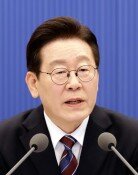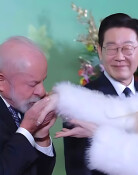[Contribution] IT-boosting policy urgent for economy
[Contribution] IT-boosting policy urgent for economy
Posted January. 09, 2001 15:02,
![[Contribution] IT-boosting policy urgent for economy](https://dimg.donga.com/egc/CDB/ENGLISH/Article/20/01/01/09/2001010962278.jpg)
As a result of the government policy disarray in the course of selecting the IMT-2000 franchise, a discord has been developed among the major communications industrialists.
Cellular phone and PCS firms were obliged to make overlapping investments amounting to several trillion won in the infrastructure facilities due to excessive competition among them. And super-high-speed Internet businessmen have suffered deterioration of their income structure on account of their investment competition.
In this manner, the information-communications industries are plagued by capital shortages and business doldrums.
In the process of selecting PCS and IMT-2000 (international mobile telecommunications) licensees, advanced countries introduced billions of dollars in foreign exchange, expediting technological development and increasing employment.
However, our country has made little progress in introducing foreign exchange and transferring core technology for IMT-2000 projects, despite the fact that basis for the development of the information-communications industries has been provided in terms of the rapidly increased number of Internet and cell phone subscribers. But rather, the existing telecommunications firms find it more difficult to do business.
The information-communications industries have a great spillover effect on the economy as a whole as a catalyst for developing technologies of other industries. In other countries, in order to foster the IT industry as a nations' strategic industry, their chief executives come to the front to promote development policies.
However, the Korean government has come under fire for the implementation of makeshift policy measures, policy disarray, lack of long-range vision, and old-fashioned legal stipulations and institutions, hampering the healthy development of the IT industry.
For the accelerated development of the IT industry, it is necessary to reform the related laws and regulations, such as the electricity-telecommunications basic law, electricity-telecommunications business law and the broadcasting law, in a way to ease restrictions, abolish unnecessary provisions and revise inappropriate stipulations. Also required are changes in conventional government policies toward supporting and developing digital mode rather than analog, software rather than hardware, and creativeness and challenges rather than regulations.
Urgent policies for the Information-Communication Ministry are needed to carry out are the introduction of foreign exchange, support for private enterprises to introduce up-to-date foreign technology on favorable terms, expansion of employment through exploitation of new markets, acceleration of the development of domestic industry technology and cultivation of manpower.
Also needed are policy measures to develop and expand overseas markets and invigorate the national economy. Policies should be established to strategically foster the content and software industries, while the emphasis of government support must be shifted from large-scale enterprises to small- and medium-size businesses.
With a view to realizing the dream and vision for the 21st century, or a digitopia, the Information-Communication Ministry is required to upgrade its standing and create a new vision, and equip itself with a fresh perspective and leadership.
It is not too late even now. After casting off the rule-of-thumb policy-making, the ministry will have to establish basic policy goals for national development and then exercise strong leadership to implement the prescribed policies.
Cognizant of the fact that the prime mover of national growth lies with the information-communications industry, the government is requested to carry out bold institutional reform and provide positive support for the nation's enterprises to challenge the world with their high-level technological and competitive strength.
Rep. Huh Woon-Na of Millennium Democratic Party







